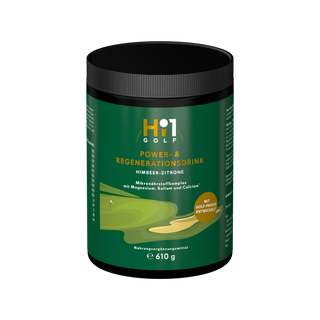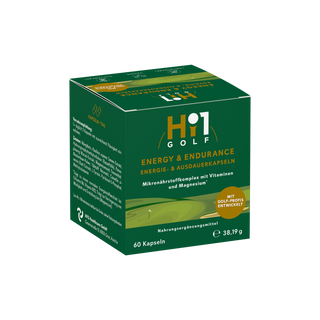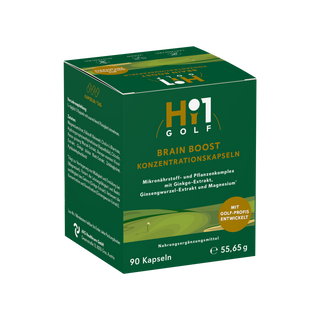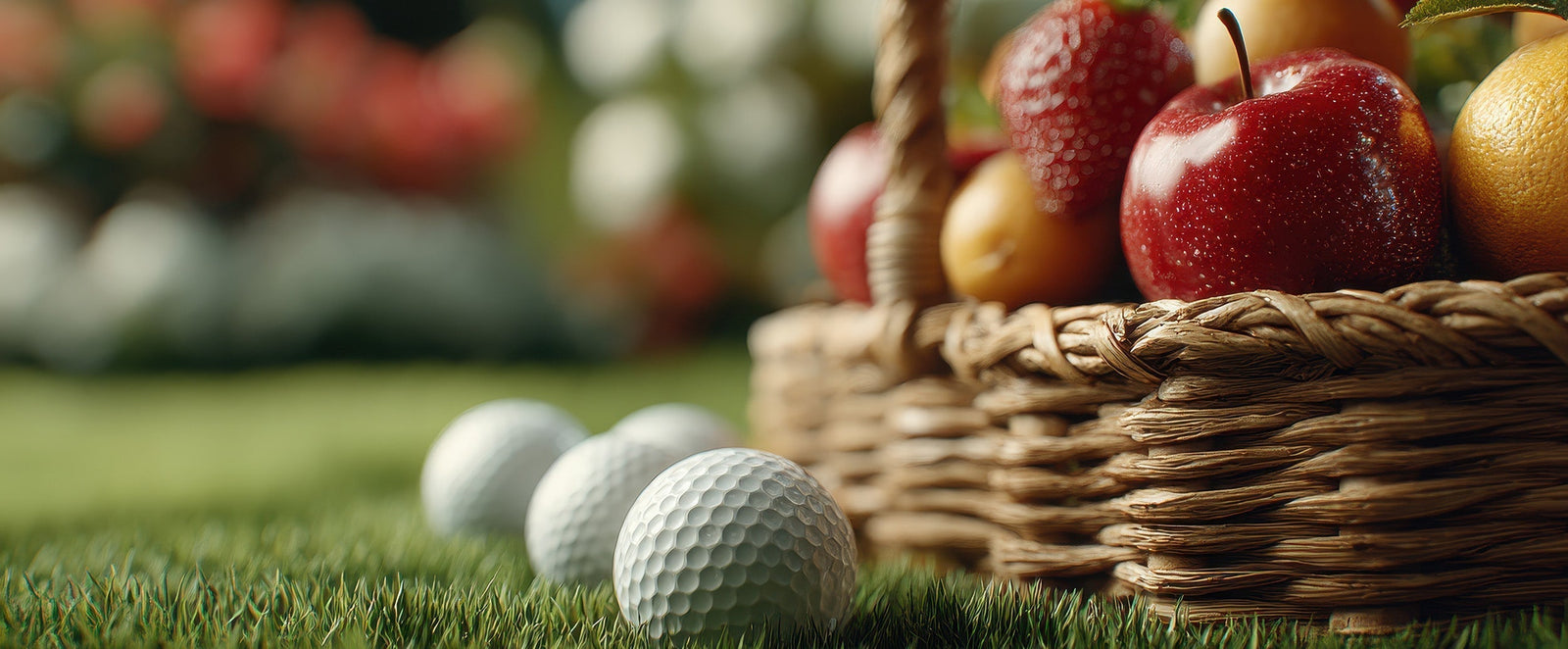How do I recover quickly after a round of golf?
A round of 18 holes sounds relaxing. But anyone who plays golf knows that it's a demanding game for the entire body. Walking for miles, rotating movements during the swing, and staying mentally alert for hours on end all take their toll. Especially after more intense rounds, you quickly notice that not only your head, but also your muscles and joints are tired.
Instead of just lying back on the couch afterward, it's worth actively doing something to regenerate. It's precisely during this recovery phase that determines how fit you are for the next game and whether minor aches and pains might become more serious. With the right support through nutrients, fluids, and a few simple routines, you can help your body regain balance more quickly.
Which nutrients help against sore muscles when playing golf?
Muscle soreness is caused by microscopic tears in the muscle fibers, often after unusual or intense exercise. To repair these micro-injuries and rebuild the affected muscles, the body needs certain minerals. Two of these are particularly important:
magnesium
Magnesium supports the normal function of muscles and nerves and contributes to muscle relaxation. After a game, it helps relieve tension, prevent muscle cramps, and promote recovery. If you notice your muscles feeling stiff or cramping more frequently after a round, this could be an indication of an increased need for magnesium.
Potassium & Calcium
Potassium and calcium are also important building blocks for regeneration. Potassium is essential for cell function and helps the body break down acids produced during physical exertion. This helps maintain muscle balance. Calcium is not only important for strong bones but also contributes to normal muscle function. A good supply of these two minerals is particularly valuable in sports like golf, which require strength, balance, and joint stability.

Which substances help with inflammation or minor sports injuries?
Even though golf is considered easy on the joints, repetitive movements, long rounds, or insufficient recovery can lead to mild inflammation. Tendons, muscles, or joints are often affected. To prevent or relieve such irritation early on, a good supply of antioxidants and anti-inflammatory substances is important.
Vitamin C
Vitamin C is one of the best-known antioxidants. It protects cells from oxidative stress, supports the immune system, and plays a key role in the formation of collagen. The latter is particularly important for the elasticity and stability of ligaments, tendons, and cartilage—precisely the structures that are subjected to significant stress in golf.
Omega-3 fatty acids
Omega-3 fatty acids also have a valuable effect on recovery. They have anti-inflammatory effects, can relieve muscular discomfort, and promote regeneration after physical exertion. Studies show that a regular intake of omega-3 fatty acids can reduce muscle soreness and shorten recovery time. Daily intake, either through diet or high-quality supplements, is particularly beneficial for golfers who frequently experience joint problems or tension.
What are the benefits of a power and recovery drink after a game?
Sometimes the body needs quick support, especially after long rounds or in high temperatures. The Hi1 GOLF Power & Recovery Drink was developed precisely for this purpose. It combines important micronutrients that are particularly helpful immediately after a game. It contains magnesium and potassium, which relax the muscles and balance the electrolyte balance. Vitamin C, as an antioxidant, supports cell protection and helps the body regenerate faster. It also contains plant-based omega-3 fatty acids to support inflammation and so-called adaptogens, which help the body recover better physically and mentally. What's particularly practical is that the drink can be consumed immediately after a game. It quickly provides the body with what it particularly needs – without putting a strain on it or leaving a heavy stomach.
Which nutrition and recovery techniques further promote regeneration?
A recovery drink can be a valuable aid, but it works best when combined with a conscious lifestyle. Even small measures make a big difference when it comes to feeling fit again after a game.
Drink plenty of fluids, preferably water or unsweetened tea. After a long round, this helps compensate for fluid loss through sweating and keeps muscles supple. A protein-rich meal after the game is also a good idea. A small snack with high-quality protein, such as yogurt with nuts or some chicken with vegetables, supports cell regeneration and helps build muscle.
Gentle stretching or mobilization promotes circulation, relieves tension, and prevents muscle soreness. A foam roller can also be helpful here—especially on the calves, back, or thighs. Cold or heat are also helpful. A short cold foot bath can be refreshing, and a warm shower after a game can be relaxing. Depending on what works for you, both options can be beneficial.
And last but not least: sufficient sleep is the simplest, but perhaps most important, measure for recovery. During the night, the body undergoes repair and recovery processes. Make sure you get seven to nine hours of sleep to maintain your physical and mental performance.
With the right support, you will recover faster and be ready for the next round
Giving your body time and nutrients to recover after a game not only helps you maintain your performance in the short term, but also supports your long-term health.
Important minerals such as magnesium, potassium and calcium, antioxidant vitamins such as vitamin C and anti-inflammatory omega-3 fatty acids contribute significantly to the restoration of balance in muscles, joints and the immune system after exercise.
The Hi1 GOLF Power & Recovery Drink combines precisely these ingredients in a sophisticated formula – convenient for on-the-go, readily available, and easy to absorb. So you recover faster, stay flexible, and are ready for the next round with a clear head and a stable swing.









